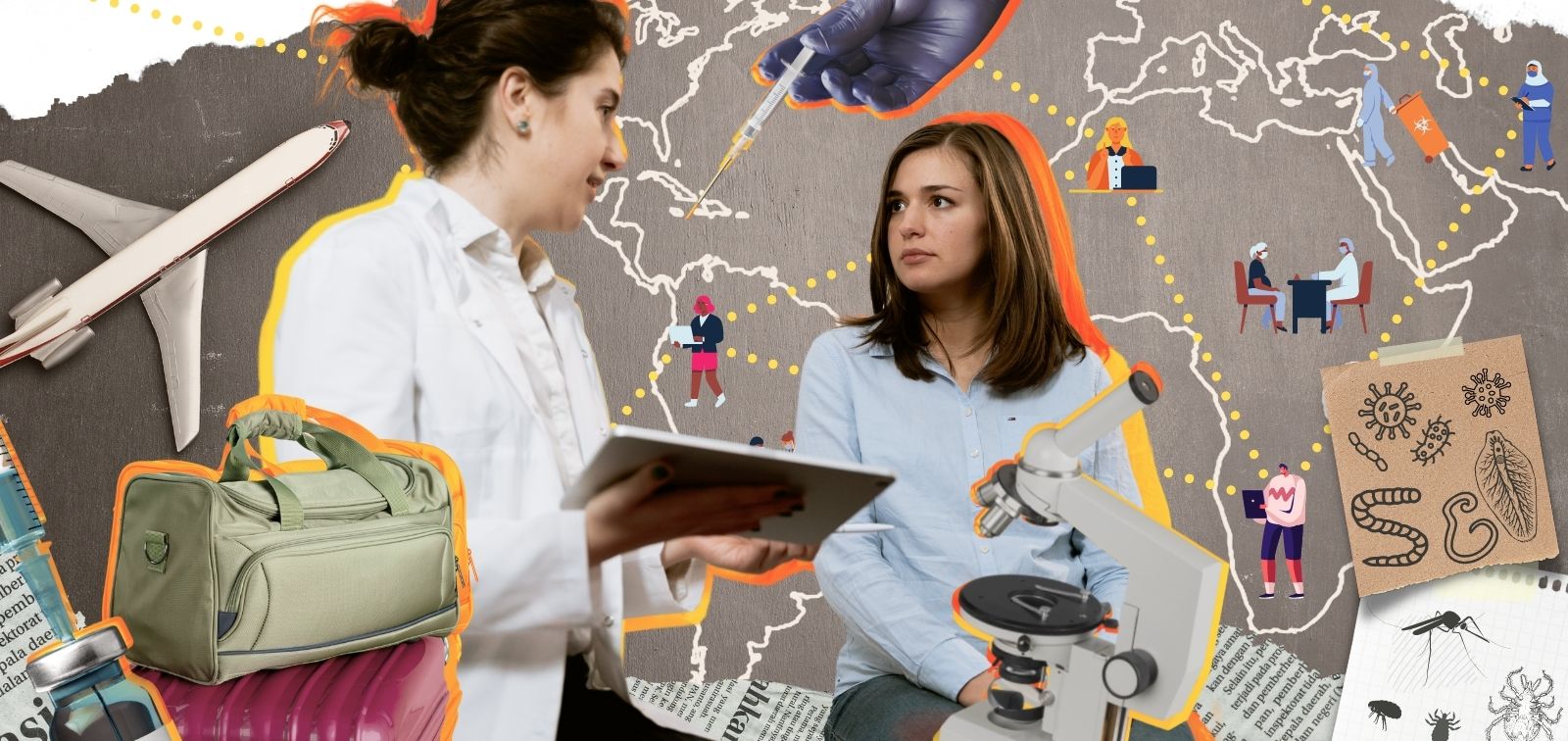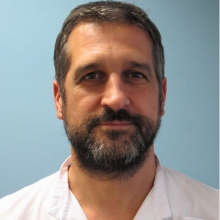A comprehensive overview of clinical travel medicine from the clinical management of imported diseases and pre-travel assessment to the multidisciplinary approach to migrants and refugees in the European context.
- Fechas
- 4 November 2024 - 4 April 2025
- Precio
- 750 EUR
- Dedicación
- Part time
- Modalidad
- Online - asynchronous with some live online sessions
- Idioma
- English
Travel Medicine and Health in Mobile Populations is aimed at clinicians seeking advanced studies in travel medicine and health in mobile populations. The course complements the training of medical doctors increasingly confronted with the diagnosis and management of neglected, tropical, and vector-borne diseases.
Participants who successfully complete the course requirements will receive a certificate from ISGlobal.
Course dates: 4 November 2024 - 4 April 2025
Tuition: 750 EUR
The course is divided into three modules, designed to fit the schedule of professional students. These modules can also be taken as independent courses:
1. Pre-travel Medicine and Consultation / Atención en la Consulta Previaje (offered in English and in Spanish)
Course dates: 4 - 29 November 2024
Tuition: 200 EUR
2. Migrant Health
Course dates: 8 January - 5 February 2025
Tuition: 200 EUR
3. Management of Travel-Related Diseases
Course dates: 17 February - 4 April 2025
Tuition: 350 EUR
Methodology
The course methodology is based on clinical cases presented through interactive lessons, short videos on key concepts, interaction with faculty through the online forum, and live online sessons with clinicians and researchers complemented by downloadable text resources.
Coursework and activities can be completed in a way that adapts to the participants’ schedules. The live sessions will be recorded and made available to those who cannot attend.
Learning Objectives
- Perform a full risk assessment prior to travel
- Perform individualized screening of imported infections in high-risk populations
- Implement the diagnosis and management recommendations for the main clinical presentations of returning travelers, migrants, and refugees
Scientific Recognition
Module 1 - Pre-Travel Medicine & Consultation
- Initial risk assessment in pre-travel consultation
- Traveler's immunization
- Yellow fever vaccine
- Malaria counselling
- Traveler's diarrhea and mountain sickness
- Environmental hazards & other special considerations
- Popular itineraries
- Practical case scenarios
Module 2 - Migrant Health
- Before Migration and Cultural Considerations
- Reflections on the basic concepts of migrant health
- Social determinants and cultural competence
- Travel, Transit and Arriving
- Mediterranean and Atlantic routes
- Refugee camps
- Settlement - General Approach
- Screening of infectious diseases and other initial recommendations
- Non-communicable diseases and gender violence
- Settlement - Specific Managament
- Trypanosoma cruzi infection in non-endemic settings
- Helminth infections in migrant population
- Management of imported eosinophilia
- Management of liver parasites
- Return Home and Hajj / Umrah pilgrimage
- Health considerations of returning migrants
Module 3 - Management of Travel-Related Diseases
- What should be considered in the initial evaluation of returning travelers and migrants?
- Febrile illness in returning travelers and migrants
- Management of malaria in non-endemic settings
- Imported arboviral infections and risk of autochthonous transmission
- Travel-related bacterial infections: enteric fever, rickettsial diseases, leptospirosis and other doxycycline-responding illnesses
- Management of traveler's diarrhea
- Imported skin lesions
- Management of imported eosinophilia
- Imported neurological syndromes
- Imported pulmonary mycoses
- Management of imported liver parasites
- Surprising diagnosis in tropical medicine
Course Director
Dr Jose Muñoz is a medical doctor specialized in internal medicine and infectious diseases. Having worked as a physician and researcher in Ivory Coast and Mozambique, he is now employed at the Hospital Clinic-Barcelona Institute for Global Health (ISGlobal). His work here focuses on clinical and epidemiological research of tropical imported diseases among travelers and immigrants and neglected tropical diseases, in particular Chagas disease and helminthiases.
Dr Muñoz has taught in the Master of International Health at the University of Barcelona since 2005 and he is currently a lecturer in the Master of Global Health of ISGlobal-University of Barcelona. He also teaches several courses related to imported diseases. He is a board member of Federation of European Societies of Tropical Medicine and International Health (FESTMIH).
Faculty Coordinators
Dr Daniel Camprubí Ferrer is an Internal Medicine and Infectious Diseases specialist working in the International Health Department of Hospital Clínic of Barcelona since 2017.
As a medical research fellow from ISGlobal, his primary research interest focuses on tropical imported diseases among travelers.
Dr Inés Inglesias is a medical doctor, specialized in Family Medicine and the Community in Spain, with clinical experience in travel medicine and imported diseases. She obtained her master's degree in Tropical Medicine in 2018 and her Ph.D. in Global Health in 2021, both from the University of Nagasaki (Japan), where she carried out research projects about the situation of Chagas disease in Japan. Currently, she has projects in both Spain and Japan.
Dr Natalia Rodríguez Valero is an Internal Medicine specialist working in Travel Medicine since 2015 in the Department International Health and Tropical Diseases (Hospital Clinic Barcelona) after her specialization in Tropical Medicine & International Health in London in 2014 and several international stages.
She performs her research as a fellow in ISGlobal. Her main current research fields are emerging diseases and new technologies in Travel Medicine.
Course Coordinator
Dr Pedro Laynez Roldán is an internal medicine specialist who collaborates with the international health department of the Hospital Clinic and the Barcelona Institute for Global Health (ISGlobal). His work focuses on tropical imported diseases among travelers and migrants, particularly related to recently arrived migrants and health at the border.
Entry Requirements
Candidates for Travel Medicine and Health in Mobile Populations must:
- Have a medical degree (MBBS, MBChB, MBBCh, BMBS, MD or equivalent). Candidates who are health professionals with different profiles will be considered based on their level of knowledge and experience.
- Be currently working (or have previous work experience) in a clinical setting;
- Have an advanced level of English sufficient to postgraduate level coursework.
Application
To apply for the course, candidates should submit the course pre-enrolment form, indicating the correct course and attaching a C.V. and a brief (one page or less) letter of motivation.





